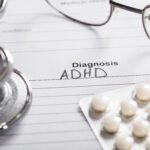Dementia is a diagnosis commonly feared and associated with old age, but most people do not fully understand how it affects a person or their loved ones. Although a third of people over age 85 suffer from some form of disease, many people are not able to distinguish between the normal signs of aging and a concerning situation that needs to be reported to a doctor.
Signs of Dementia
While the Centers for Disease Control and Prevention (CDC) points out that it can be perfectly normal for an older adult to frequently misplace their keys or forget the name of an acquaintance, a number of factors should raise red flags that a person should be assessed for this disease:
- Getting lost while in familiar places
- Incorrectly naming a familiar object (saying cup when they mean bread)
- Forgetting the name of someone to whom they are close
- No longer retaining old memories
- Struggling to complete daily living tasks independently
- Changes in personality or decision making
Under the Umbrella
The first thing to know about dementia is that it is an umbrella term encompassing several related conditions. According to the Mayo Clinic, several forms of dementia are not reversible. These include:
- Alzheimer’s disease – this is the most common type of dementia, and it results from clumps and tangles of two proteins inside a person’s brain. A small percentage of Alzheimer’s cases seem to have a genetic component. Alheimer’s is known for stealing the memories of people it impacts and also decreasing their ability to independently care for themselves as their memory and cognitive ability decreases.
- Vascular dementia – this results from damage to the vessels that supply blood to the brain, and strokes may accompany the condition. Slowed thinking, decreased problem-solving ability, inability to focus, and poor organization tend to be more noticeable in this form of dementia than memory loss.
- Lewy body dementia – after his unfortunate death, it was discovered that beloved actor and comedian Robin Williams suffered from this form of dementia, though it was misdiagnosed as Parkinson’s during his lifetime. This condition can create hallucinations and issues with focus and attention. Uncoordinated or slow movements and rigidity are also common in Lewy body dementia.
- Frontotemporal dementia – this type of dementia is the result of nerve cells breaking down in the region of the brain that governs personality, language, behavior, thinking, judgment, and movement; therefore, the changes that can be observed in a person with this diagnosis are generally in these domains.
- Mixed dementia – most common in people over the age of 80, this diagnosis indicates that a person is suffering from more than one type of dementia simultaneously.
Connected Conditions
Several conditions are linked to dementia:
- Huntington’s disease – this is a genetic mutation that causes cognitive decline as a result of the deterioration of nerve cells in the brain and spinal cord. Unlike most forms of dementia, the cognitive decline caused by Huntington’s disease is often observable by the time a person is in their 30s or 40s.
- Traumatic brain injury (TBI) – this is generally the result of frequent and/or repetitive head trauma, such as an athletic injury or car accident. Symptoms, which may not appear immediately after the impairing event, can include memory issues, aggression, depression, and impaired speech.
- Parkinson’s disease – in addition to the tremors and limb rigidity commonly associated with this disease, many people with the condition also have dementia symptoms. Thanks to the efforts of actor Michael J. Fox, more attention is being brought to this disease and research into treatments is growing.
Reversible Issues
Some conditions that could be easily confused with dementia are actually health problems in which the cognitive concerns can be reversed:
- Infections and immune disorders
- Thyroid issues
- Low blood sugar (hypoglycemia)
- Low or high electrolytes
- Nutritional deficiencies
- Side effects, reactions to, or interactions between medications
- Subdural hematomas (commonly seen after a fall in elderly patients)
- Brain tumors
Diagnosing Dementia
When doctors are attempting to diagnosis dementia and related conditions, they will try to rule out other issues, such as those listed above, using a number of tools:
- Physical exam – checking blood pressure, vital signs and lab work.
- Family medical history
- Brain scans
- Cognitive and neurological tests
- Psychiatric evaluation
- Blood and genetic tests
Treating Dementia
Because there are so many different causes of dementia, the treatments used may vary.
If you are concerned that you or someone you loved may have dementia, the first step is to consult your family doctor. It is also important to remember that the most important things that friends and family members can do for a person who does have dementia is continue to love and include them. Alzheimers.gov suggests the following ways to support a person with dementia:
- Have every day be as consistent as possible, as far as meals, bedtime, and other daily activities.
Help the person track important events. - Plan activities the person enjoys and try to always do them at the same time each day.
- Allow the person as much independence as they can safely handle for as long as they can handle it.
- Buy clothing that is easy to put on and remove, with large fastenings, elastic waistbands, and large zipper pulls.
- Be gentle and respectful. Don’t argue with your loved one.
You’ll Find Help & Hope at Highland Hospital
People with dementia may also struggle with depression and impulsivity as a result of their dementia diagnosis. At Highland Hospital, we are here to help you and your loved ones with a variety of mental health needs, at each stage of life.










